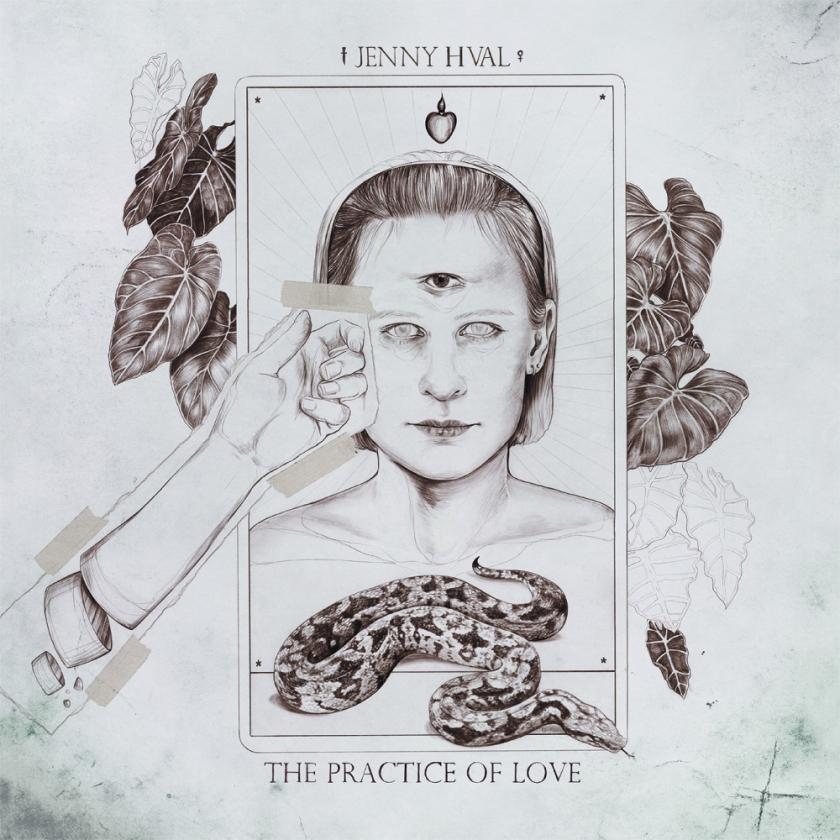On a first pass, The Practice of Love seems to be an electropop album in thrall to trance music’s tropes: the synth wash, repeated musical phrases, a whooshy programmed percussive pulse, an otherworldly atmosphere. But the lyrics invite further inspection. On the first track “Lions”, a narrator invites the listener to look at grass and trees, ants on the ground, flowers, mushrooms. “Study this, and ask yourself where is God? This place doesn’t know, this place doesn’t care...[it’s]…whispering a pagan song.”
As The Practice of Love moves beyond its opener, trance remains the musical template but the ensuing seven songs develop the themes of dissociation: from the environment, from other people, from belief systems, from one’s self. Yet, conversely, trance became about communion, a form of music integral to mass gatherings. What was traceable back to new age music had become commodified. On her fifth solo album, Norway’s Jenny Hval co-opts trance by warping it to scrutinise the place of self during the ageing process.
Like its predecessor, 2016’s Blood Bitch, The Practice of Love references cinema. The new album’s title is borrowed from a 1984 film made by the Austrian cross-genre artist Valie Export (born Waltraud Lehner; the film’s original title was Die Praxis der Liebe). Ostensibly a thriller about a female journalist uncovering arms deals enacted by two men she had relationships with, its core topic was male jurisdiction over the protagonist.
And indeed, Hval explores alienation and the blurring of boundaries generated by ageing, and their relations to gender. Often, the album is glacially beautiful. “Accident” and “Ashes to Ashes” are lovely, glistening examples of pop music. Whichever way it’s seen doesn’t matter though as The Practice of Love achieves what it sets out to do from any of the perspectives from which it was created.














Add comment